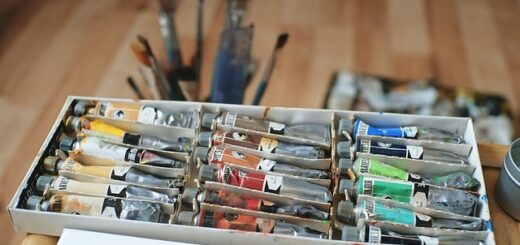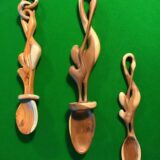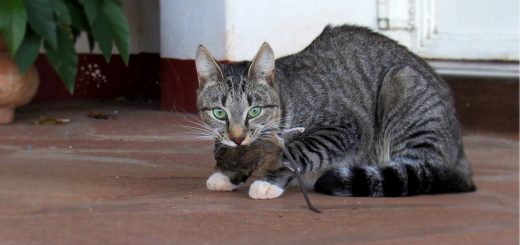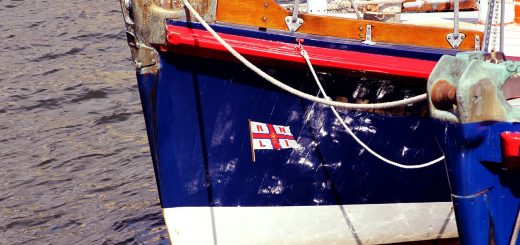A Tale of Two Boys – Part 1


“Everyone made a brief report: ‘Oberkamaradschaftsführer Hübner, Bann 803, Lower Silesia area, messenger in the fight for Lauban.’ And he shook hands with everyone. When he stroked my cheek, he said: ‘Well, my boy’ or something similar. Then he gave a short speech about how proud he is of his young people…”
The words of 16-year-old Wilhelm ‘Willi’ Hübner.
“I got a new uniform in Breslau and was brought to Berlin. I was taken to the Reich Chancellery, allowed to shower, and had to line up with 19 other boys. Then Hitler came. He said he was proud of us. He shook my hand, patted my cheek, he said: ‘So, you are the youngest of them all. Weren’t you scared when you rescued those soldiers?’ I replied: ‘No, my Führer!’ He said: ‘Keep it up’ Then it was over…”
The words of 12-year-old Alfred Czech.
The photograph taken, on 20 March 1945 of the Hitlerjungend Helden (Hitler Youth Heroes) ceremony is famous, and it was intended to be so. Goebbels’ propaganda ministry had carefully managed the occasion.The boys, who had all shown bravery in the face of the enemy and been awarded the Iron Cross 2nd class*, were brought to Berlin to be captured by the Deutsche Wochenau (German Newsreel service) to show the world a defiant last stand. The intention was to demonstrate that the depth of potential combatants, and their commitment to the Reich, ran deep. It is the last known recorded public appearance by Hitler, and it is because of this link that it is often mis-dated as taking place on his 56th birthday, 20 April 1945. But what is interesting is not this empty publicity stunt, but the stories of the boys. This account is the tale of the two youngest: Willi Hübner and Alfred Czech.
* The Iron cross was a scalable award first you won the Iron Cross 2nd class, before you could be awarded higher levels: it went from 2nd class to 1st class of the Iron Cross, then the Knights Cross and finally the Grand Cross.
Willi’s Story

Willi Hübner was born in Lauban, Silesia, in 1928**. When he turned eight, he joined the German Young Folk (Deutsche Jungvolk DJV), a junior branch of the Hitler Youth. They sang songs, read heroic histories, and learned to march and drill.
In September 1939 came the invasion of Poland and the start of war. Lauban was an important railway station and was where Willi’s father worked as a locksmith. Willi and his three brothers would spend hours there watching the endless stream of eastward bound trains loaded with guns, tanks and soldiers. They spent every minute they could either there or in the surrounding farms where soldiers of the Wehrmacht were quartered. Willi recalled enjoying a good feed from the military goulash cannons (large pressure cookers). It was an exciting adventure for them. From that time, the armed forces reports were read out in school instead of morning prayer.

When he turned 14, he joined the Hitlerjungend and began paramilitary training. Willi had left school and begun his apprenticeship as a lathe operator with the Reichsbahn (state railway). He remembers that military training was the ‘be-all and end-all of our upbringing then’. They went on military training camps, Hitler Youth ski camps, small-bore shooting – ‘sometimes I cursed and cried while exercising for hours!’ Willi loved the comradeship and made many new friends. They were jealous of their mates when they got their draft notice and went off to join the fight. He recalls that being at work was difficult as the lure of the war and the desire to serve was so strong. In the autumn of 1944 Willi and his comrades received their first military assignment. The mighty German army was in retreat, and the boys spent three months digging trenches and tank bunkers. He recalls that girls from the BDM (Bund Deutscher Mädel – League of German Girls***) were also drafted in to cook their meals and mend their socks.
Shortly before Christmas that year, Willi got his draft papers and reported to a Luftwaffe Flak Unit (air force anti-aircraft gun battery) in Königsberg. Alas, after just two weeks he was sent home. He looked young for his age and they said he was not old enough. This worried him as he was so keen to help the war effort.
He watched as the front came closer and closer. In the distance they could see Breslau burning, ‘the sky was a single flicker and there was a constant rumble of thunder’. In the surrounding villages, the Hitlerjungend set up tank observation posts and Willi took part in both the construction and manning of these facilities. At this time, they were trained in the use of the Panzerfaust (a single-use anti-tank weapon). With the Soviet forces at their door, the town’s 23,000 inhabitants were evacuated. As the first Soviet shells hit the station Willi’s parents and younger brother boarded the last train out. Willi’s Hitlerjungend unit was moved back 20km, but he decided to stay immediately reporting to the local Combat Commander of the Führer Grenadier Division**** , asking him to accept Willi into his unit as a voluntary Hitler Youth. He was desperate to help and be there to defend his home town. He explained that due to his extensive local knowledge he’d be useful to the

commander. The officer registered Willi as a Volkssturm***** combatant (literally – folk assault) and assigned him the role of liaison officer tasked with carrying messages to frontline units. Willi was thrilled to be given this opportunity, ‘that’s when I got my first cigarettes and my first schnapps’.
On his first mission he experienced the reality of combat. Tasked with reporting to an advanced unit east of the town to inform them to relocate, he hitched a lift on a Tiger tank, sitting behind the turret. Without warning four Russian T-34 tanks appeared over a hill and fired upon them. While the Tiger tank engaged the enemy, Willi decamped and took cover in a ditch. He recalls: ‘After a brief skirmish two of the T-34s blew up, a third was damaged billowing smoke, while the last turned away. I spent a long while in the ditch. Then I managed to get down to the valley and make my report.’ Day and night Willi carried out many such dangerous missions delivering and relaying messages from his commander to outlying units. Having played around the area all his childhood he knew it like the back of his hand and this enabled him to carry messages through no man’s land. He recalled: “You never knew, is the Russian already here or not? I said to myself: ‘It is a pitch-dark night, Ivan doesn’t know his way around, but I know my way around, so I have a better chance…’” Although his uniform and helmet were too big for him, he felt like a real soldier. On several occasions, while he was at HQ, his commander called him to the map table to help in briefing officers. Willi was able to tell them about the terrain, what type of bridges there were, what they were made of, and what tracks and access routes were available. His local knowledge proved invaluable. When not relaying messages or helping his commander, Willi occupied himself by carrying arms and ammunition to his comrades. He found a wheelbarrow, which he would load with Panzerfausts and other items, delivering them to the front. He was often under enemy fire and beyond question in real danger. His commander valued him and soon gave him a pet name, ‘Bubi’, though he only used this moniker when they were chatting informally, at all other times Willi was referred to as Hübner.
With the battle won, his commander congratulated him saying: “Hübner, tomorrow you will get a gong!”
The following day, 9 March, amid the numerous burnt-out Russian tanks and debris of war, the regiment smartly dressed, assembled in the town square where Willi was awarded his Iron Cross. It was a moment of immense pride for him and the award was well received by his adult comrades.
The battle for Lauban was the last major German counter-offensive of the war and an important victory. Due to the vital railway station, they needed to secure it. A major tank battle that ran between 1 and 8 March, it successfully held up the Russian 3rd Tank Army, causing Stalin to phone its commander, Marshall Koniev, asking what the holdup was. For the remainder of the war, the front line around Lauban did not change much. Due to the perceived value of this victory, Joseph Goebbels visited Lauban on 9 March, and young Willi, now a hero and with his Iron Cross, was presented to the Reichsminister Propaganda – the moment caught by the ever-present cameras.
Willi recalls: “It was one of the most touching moments in my life. The whole company had lined up and I had to walk down the front with the medal attached. Old soldiers had tears in their eyes, I don’t know why…’ Reich Minister Goebbels arrived. The company lined up in the market square, “like a field march, everything nice and clean… I was standing there a Pimpf ****** at 16 and with my Iron Cross. He saw it straight away and came over to congratulate me.” Willi’s expression and body language say it all.


A short while later came the invitation from the Hitler Youth Leader Reichsjugendführer Arthur Axmann. Twenty boys were transported to Berlin. They were issued with new uniforms and stayed at the Youth Leader’s guesthouse.
Willi recalls: “That was such a time, I have never experienced anything like it since. I had never seen such great things to eat, even table wine! We felt like princes. We visited Berlin by bus, going to castles, and we all thought that this was going to be a turning point.”
On the morning of 20 March, the boys were given a shower, a hearty breakfast, then taken to the Reich Chancellery for the Hitlerjungend Helden ceremony (Hitler Youth Heroes). They had done the best to polish up their uniforms and present themselves well.
Willi recalled: “We only knew him from his voice or from the newsreel, but his person, the close proximity to him, fascinated us so much that we didn’t even think he’s just a person like everyone else. It was only later that I realised that his face was rather sunken, and that he was trembling a little when he gave his short speech. I didn’t even notice a photographer and film crew were there because I was so focused on him. That was a great feeling, undeniably! The greatest event in my life…”
After the ceremony, the boys were invited to join Hitler for a meal in the Reich Bunker during which enthusiastically they recounted their war stories. One of the boys was Armin Dieter Lehmann, born 23 May 1928 (not there that day – but in the next parade 20/4/45). He had won his Iron Cross for bringing wounded men out of the line of fire and in so doing was gravely wounded. As he was not fit to return to fight he was offered a position as a courier in Hitler’s Reich Bunker. He witnessed the fall of the Third Reich and was there when Hitler committed suicide on 30 April. After Hitler’s suicide he joined the desperate and bloody breakout from the Bunker and, heading west away from the Russians, successfully surrendered to the Americans two months later. He spent his adult life working in travel and tourism and as a peace activist. Later he went on to write an account of this time in the Bunker.*******
The meal over, the boys were taken back to Arthur Axmann’s guesthouse and were allowed to make a gift request. Willi asked for a Leica camera but as none were available he was given a fountain pen with a gold nib.
Willi was sent back to Lauban to resume his duties but saw no further action. He was reunited with his family save one brother, who was missing. When war ended they were expelled from Poland. While his parents moved to Landshut in Bavaria where they found acceptance, Willi and his elder brother walked to the Borna lignite mining district near Leipzig. As he was still a minor, Willi was placed with a guardian and completed his apprenticeship as a lathe operator. Soon after, he signed up for two years in the East German People’s Police (Vopos). However, the service, barracks and communist ideology did not sit well with him, and he began to rebel, leading to his dismissal. He was unable to find suitable employment so in 1949 he moved to Bavaria to begin again. It was not easy: the locals did not want to take in displaced Germans from the east. For a while he drifted, working as a farmer and a caretaker before rejoining his parents and landing a job at a service station pumping petrol. Eventually he became an engine fitter and settled down. He got married (his wife worked in a hospital) and they lived a contented life.
Throughout his adulthood he found it hard to adjust to normal life and his war experiences never left him and still defined him. He said, “After the war was a difficult time: first you are at the top, and then nothing. I didn’t want to know anything more about politics, I’ve stayed out of it for a long time. I don’t believe in comradeship either: at first you are deep in war, in danger, then you get a medal, and everyone says, Hübner we always knew what you were made of. Then, later, you see old friends and approach them, but they don’t want to know you anymore…just go away.’ He collected militaria – rifles, medals etc – from the time and kept on his wall photographs of his meeting with both Goebbels and Hitler. At the time of writing, I have been unable to discover whether he had any children. He died on 12 April 2010, aged 81.
** I am currently researching the exact date of Willi’s birth. We do know he was 16 at the time of the award ceremony, so he would have been born some time between April 1928 and March 1929 – Silesia is now part of Poland
*** The BDM was the Nazi Youth organisation for teen girls. They did not engage in military training but did sports, outdoor activities and learnt to be good prospective mothers. Nazi doctrine saw women as homemakers and child-bearers.
**** The Führer Grenadier Division was an Elite Wehrmacht mechanised infantry unit often wrongly cited as an SS unit due to their being chosen to guard Hitler’s Eastern HQ, Wolf’s Lair.





















1 Response
[…] Following on from the story of 16-year-old Wilhelm ‘Willi’ Hübner, here is the story of 12-year-old Alfred Czech… […]